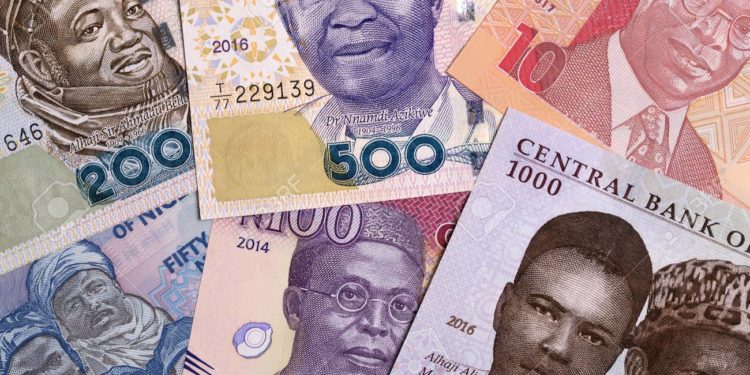Given the recent policy shifts affecting the Nigerian banking sector, including the Central Bank of Nigeria’s (CBN) revised capital requirements and the windfall taxes, it’s understandable that both local and foreign investors might harbor concerns about the sector’s stability.
However, data reveal that Nigerian banks may be well-equipped to navigate these challenges, underpinned by strong financial fundamentals and promising growth prospects.
This year, the Nigerian banking sector must face two significant policy shifts that may directly impact its operations.
In March, the Central Bank of Nigeria (CBN) announced an increase in the minimum capital requirements for commercial, merchant, and non-interest banks.
Adding to the challenge, on July 17, 2024, the Federal Government submitted an executive bill to the National Assembly proposing a windfall tax on Nigerian banks’ realized profits from foreign exchange (FX) transactions within the 2023 financial year.
Initially set at 50%, the Senate later increased this tax to 70%.
With banks aiming to raise over N4 trillion to meet the Central Bank of Nigeria’s (CBN) new capital requirements, opinions are divided on the impact of the windfall tax.
Some believe the tax could derail the bank’s efforts to raise the required capital, while others see it as a necessary step in the right direction.
For instance, KPMG, in its July 2024 report, noted that banks would have already paid a 30% income tax on these profits in their 2024 tax returns.
They raised concerns about whether banks would only need to pay an additional 20%, emphasizing the need for clarity to avoid disputes and potential double taxation. Without such clarification, the same income could be taxed twice.
Similarly, a report by the US-based Emerging & Frontier Capital, titled “More Pain for Longer,” suggested that while investors in Nigerian banks understand the government’s need for revenue, the tax could negatively impact the banking sector.
The report argues that the proposed 70 per cent windfall tax on Nigerian banks’ realized profits from FX transactions between June 2023 and December 2025 directly conflicts with the CBN’s mandate for banks to raise additional capital.
On the other hand, some bank chairmen, such as Femi Otedola, Chairman of FBN Holdings, and Tony Elumelu, Chairman of United Bank for Africa, have expressed support for the windfall tax.
The critical question remains whether banks can sustain a positive outlook despite the windfall taxes.
To address this, it is crucial to assess the banks’ financial performance and their ability to shoulder the anticipated tax liabilities.
Banks strong performance
A cursory review of ten major banks’ financial statements; Access Bank, FBN Holdings, FCMB, Fidelity Bank, GTCO, Stanbic IBTC, Sterling Bank, Wema Bank, UBA, and Zenith Bank, reveals strong financial performance.
In 2023, these banks achieved 101% year-on-year growth in gross earnings, reaching N11.603 trillion.
- Interest income made up 59% of the total gross earnings, amounting to N6.82 trillion, which reflects an impressive 84% year-over-year increase. This indicates that the banks’ core income-generating activity, driven primarily by their lending operations, was robust and grew significantly.
- After accounting for higher growth in interest expenses (97.6% YoY), net interest income reached N3.94 trillion. This amount constitutes 34% of the total gross earnings.
- Net fees and commission income were N1.027 trillion, which accounts for 8.85% of the gross earnings. When combined with net interest income, this brings the total contribution of net interest income and net fees and commission income to 42.78% of gross earnings.
This shows that these two income sources together form a significant portion of overall earnings, highlighting their importance in the banks’ revenue streams.
- Foreign Exchange Gains: The combined net foreign exchange gains for the banks amounted to N2.831 trillion in 2023, which represents 24.40% of the total gross earnings. This indicates that foreign exchange gains are also a notable part of the banks’ earnings, though less dominant compared to interest income.
Based on the contribution ratios of interest income, net interest income, net fees and commission income, and foreign exchange gains, the bank appears able to absorb additional tax liabilities from foreign exchange gains
Assessment
Strong Core Income Base: Interest Income and net interest income together constitute 42.78% of gross earnings. This indicates a solid core income base from traditional banking activities, which is crucial for covering any additional tax liabilities. Even if a significant portion of the foreign exchange gains were taxed, the core income sources provide a strong buffer.
Impact of Foreign Exchange Gains: Foreign exchange gains account for 24.40% of gross earnings. If these gains were subject to a windfall tax, it would directly impact the banks’ profitability.
- However, since they represent a substantial, but not the majority portion of the earnings, the banks can absorb some of the tax liabilities without severely impacting their overall financial health.
- Given that the windfall taxes would be on realized gains, and the foreign exchange gains declared include realized and unrealized, the impact would not be that severe.
- Here it is important to note that while some of the banks stated whether the gains were realized or unrealized, some did not categorize it. For instance, FBNH, Fidelity bank, GTCO, stated that its foreign exchange gains were not realized while FCMB stated its N86.31 billion FX gain was realized.
Tax Liability Management: The potential windfall tax on foreign exchange gains, assuming a worst-case scenario of taxing realized and unrealized, would no doubt impact the banks’ net income.
However, the bank’s strong performance in core income areas provides a cushion. They are likely to manage the tax impact by leveraging their robust earnings from interest and fees.
With net interest income and fees accounting for nearly 43% of gross earnings, banks have a significant revenue base outside of foreign exchange gains.
This diversified income stream suggests that they can absorb additional tax liabilities from foreign exchange gains while maintaining financial stability.
The banks are currently in the market, raising over N4 trillion in capital, which is set to be deployed into loan expansion, ICT investments, and market expansion.
This capital injection is poised to positively impact interest income, net fees and commission income.
Interest income is likely to see significant growth due to the expansion in loans and advances coupled with rising interest rates, further solidifying its role as the largest contributor to gross earnings.
Meanwhile, ICT investments and market expansion are expected to drive growth in fee-based income, leading to a more balanced and robust earnings structure.
This strategic deployment of capital will likely enhance the banks’ profitability and financial stability, positioning them well for future challenges and opportunities.
Overall, while the windfall tax will reduce net income, the banks’ ability to generate robust revenues from core banking activities, coupled with their planned expansions, should enable them to maintain profitability and financial stability.

























